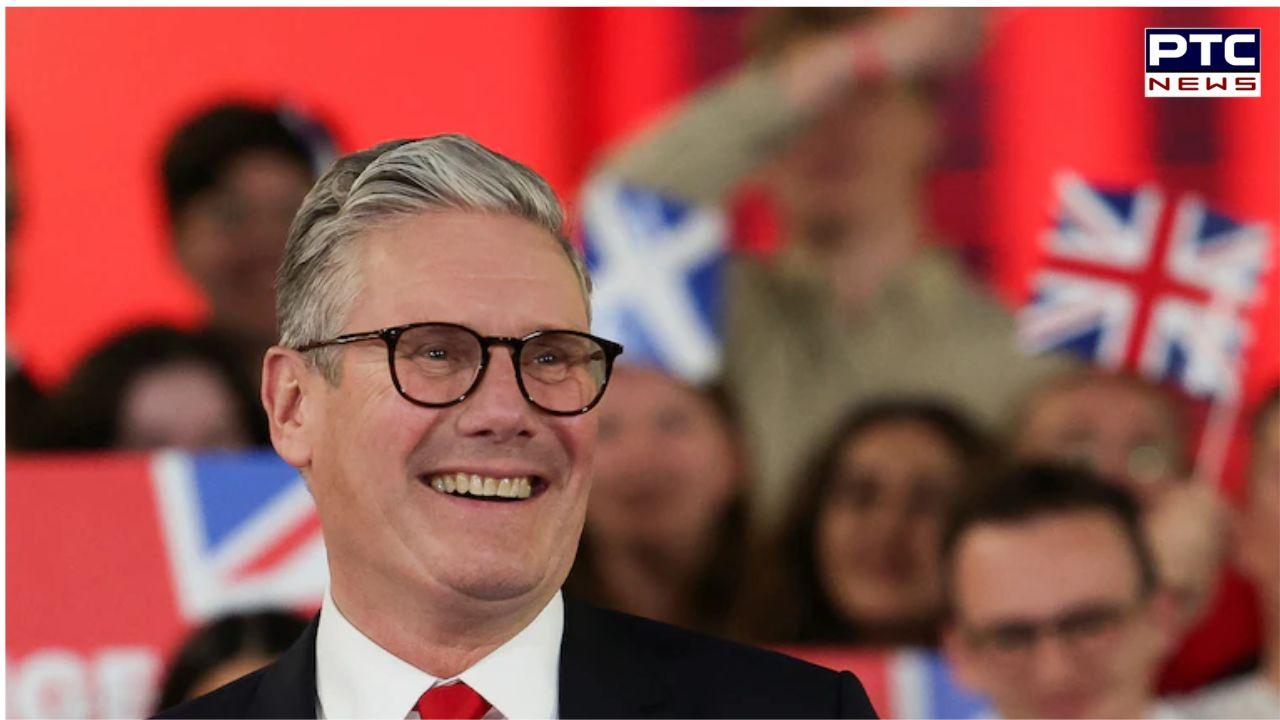Keir Starmers early challenges as New UK Prime Minister | Explained
Starmer’s initial months are packed with tough decisions that span foreign affairs and domestic issues

PTC Web Desk: As Keir Starmer steps into his role as the new Prime Minister of the United Kingdom (UK), he faces a myriad of challenges that will define his leadership and the future trajectory of the nation. With a strong focus on long-term growth, Starmer’s initial months are packed with tough decisions that span foreign affairs and domestic issues. Let's delve into these key areas, exploring the implications of his strategies and decisions.
Foreign Affairs
Ties with the US and Europe: Keir Starmer has emphasised the importance of maintaining a strong relationship with the United States, stating that the bond between the UK and the US transcends individual leaders. This pragmatic stance is designed to ensure stability and continuity in foreign policy, reassuring allies that the UK remains a steadfast partner regardless of the political climate. By ruling out rejoining the EU single market or customs union, Starmer maintains a commitment to Brexit while exploring ways to reduce trade barriers with the EU. This approach aims to foster economic ties and ease the financial strain of Brexit without compromising political autonomy.
Ukraine: The UK’s pledge to provide £3 billion in military aid to Ukraine under Labour's leadership underscores a firm commitment to supporting Ukraine amidst its conflict with Russia. Starmer’s administration promises unwavering military, financial, diplomatic, and political support for Ukraine, aligning with broader Western efforts to counter Russian aggression. This stance enhances the UK’s international standing and reinforces its role in European security, but it also necessitates careful management of resources and public support at home.
Gaza: Starmer’s intention to recognise a Palestinian state at the appropriate stage of the peace process indicates a balanced and thoughtful approach to Middle Eastern diplomacy. This move could strengthen the UK's relations with Arab nations and promote peace efforts in the region. However, the timing and execution of this recognition will be critical to ensure it contributes to lasting stability rather than exacerbating existing tensions.
China: Labour’s commitment to a long-term and strategic approach in managing relations with China reflects a sensible and measured policy. Given China’s significant global influence and the complexity of Sino-British relations, a strategic approach is essential. This will involve balancing economic interests with human rights concerns and geopolitical considerations, requiring nuanced diplomacy and clear policy objectives.

Domestic Front
Tata Steel: The new government’s decision on the £500 million support package for Tata Steel is pivotal for the UK's industrial future. Supporting the transition to a lower-carbon electric arc furnace aligns with environmental goals and secures jobs in the steel industry. This decision will demonstrate the government’s commitment to sustainable industry practices and economic stability, while also addressing climate change imperatives.
Junior Doctors: The strikes by junior doctors over the past 18 months highlight significant dissatisfaction within the NHS. With junior doctors demanding a 35% pay rise, contrasted with the government’s offer of a 10% increase, resolving this issue is critical. Addressing these grievances promptly and effectively will be essential for maintaining the morale and efficiency of the NHS, especially in the wake of the pandemic. Balancing fiscal responsibility with fair compensation for healthcare workers is paramount.
Royal Mail: The acquisition of Royal Mail by Czech billionaire Daniel Kretinsky presents both opportunities and challenges. Labour’s commitment to ensuring adherence to the five-year assurances provided by Kretinsky reflects a focus on stability and accountability. Close monitoring of this deal will be necessary to safeguard jobs and services while adapting to the evolving landscape of postal services.
Shein: The potential London listing of Chinese-founded fast fashion retailer Shein could provide a significant boost to the UK market. Labour’s support for this deal indicates a willingness to attract international investment. However, it is crucial to ensure that such deals align with ethical standards and contribute positively to the UK economy. Addressing concerns related to fast fashion’s environmental and labour practices will be essential to securing broad-based support.
